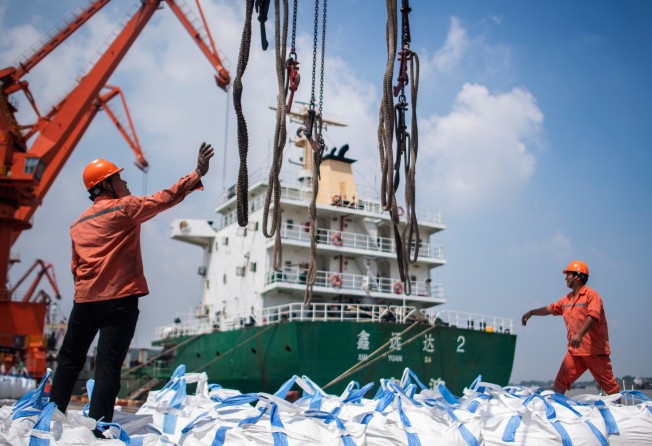
China and America could be heading for a new cold war, Stephen Roach warns
Veteran economist says neither side has an exit strategy in trade dispute, and it could turn into ‘protracted, bitter battle’

As Beijing and Washington dig in their heels in the spiralling trade conflict – a symptom of the broader strategic conflict between the major powers – the world may see the onset of a new cold war, veteran American economist Stephen Roach warned on Friday.
The former chairman of Morgan Stanley Asia said the next round of tariffs US President Donald Trump has threatened to levy on US$200 billion of Chinese goods would be another significant escalation of the dispute, which could lead to a “protracted, bitter battle”.
“What does the US do if China’s not going to back down? It doesn’t have a plan B,” Roach said on the sidelines of the American Chamber of Commerce annual conference in Hong Kong.
“It could be a new cold war because the US is after containing the biggest threat that it faces as a global power, which is China,” said Roach, now a senior fellow at Yale University.
“China’s stymied on how to address the increasingly aggressive policies of the Trump administration … The outcome seems to be that right now, at this point, there is no exit strategy for either side.”

Trade talks have stalled in recent weeks between the world’s two largest economies, with billions in duties already enacted on both sides and the possibility of Washington imposing additional tariffs as early as this week. The Trump administration has accused Beijing of engaging in unfair trade and intellectual property practices, in particular assailing the “Made in China 2025” industrial policy designed to leapfrog Beijing from a manufacturing to innovation powerhouse.
During the conference’s keynote discussion with China scholar Minxin Pei, from Claremont McKenna College in California, Roach said the race for technological supremacy between China and the US was a decisive factor in their struggle for economic dominance.
“I don’t really believe that the US-China dispute is truly about trade imbalance,” Roach said. “I think it’s more of a strategic clash over innovation and technology – the holy grail of any nation’s economic prosperity.
“America’s scapegoating of China would make Don Quixote blush; it is a convenient excuse for ducking the tough issues of economic strategy that the US has avoided for decades.”
Pei said during the event that rising trade tensions had already seen China and the US fall into the “Thucydides Trap”, the idea that an established power’s fear of a rising power could escalate into war.
“We are already in that trap,” he told the audience. “For China, achieving technological independence and sustainable momentum is a matter of national survival.
“The ZTE incident was a wake-up call,” he continued, referring to Washington’s crippling ban on the Chinese telecommunications giant, which Trump later reversed. “If I were a Chinese leader, I would say, ‘Never again – we’re not going to allow our economic future to be at their mercy’.”
Pei said the United States would no longer allow China – a strategic competitor – to obtain key technologies, with both sides realising the economic interdependence they had built up over the past few decades posed “an unacceptable national security risk”. The US may take steps to expand restrictions for Chinese access to sensitive technologies and bilateral educational exchanges, and even revive the cold war-era Coordinating Committee for Multilateral Export Controls, or CoCom, he said.
Pei outlined three possible scenarios for the future: China and the US reaching a grand bargain to resolve fundamental issues, China agreeing to a comprehensive set of demands by the US, or a fight “to the bitter end”.
“How bitter the bitter end will be, I will leave it to your rich imaginations,” he told the audience.
As for the ongoing trade war, Roach – who declined to say if he was part of trade negotiations but described himself as an “active participant in the debate” – said any de-escalation would not happen in the short term.
“Don’t look for anything before the midterm elections,” he said.